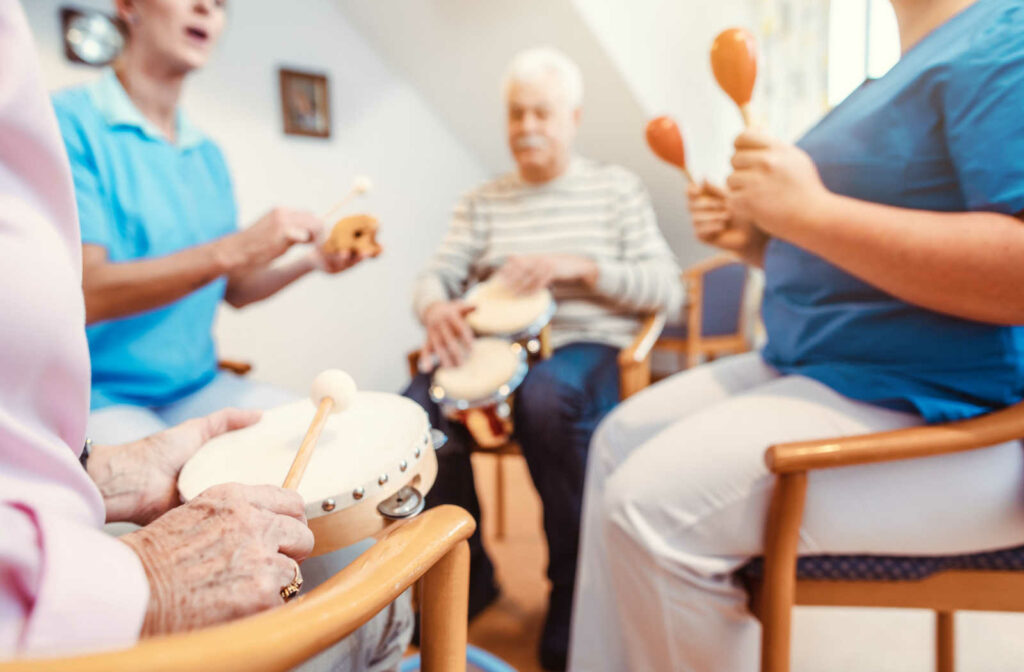Jazz, brimming with history and emotion, now has a special niche in therapy. It’s especially useful in places that focus on memory care. This piece dives into how jazz enhances the mental and emotional health of seniors receiving memory treatment. Our goal is to uncover how these sweet melodies aid those dealing with memory issues during their later years.
The Emotional Impact of Jazz on Memory Care Patients
Let’s start by looking at jazz and emotion in memory care. Jazz is known for its rich rhythms and deep feelings, touching our minds deeply. Research says that the freestyle nature of jazz brings out emotions like joy or nostalgia in older adults. It really resonates with those losing their memories as familiar songs bring back past moments and feelings.
This emotional response isn’t just about remembering old times. It taps into personal histories filled with emotion, which is a great help to folks struggling through isolation due to memory problems.
Cognitive Benefits of Engaging With Jazz Music
Next, we examine the cognitive benefits of engaging with jazz music for older adults in memory care. Jazz, with its intricate sounds and rhythms, pushes your brain to stay engaged. This is great news for those battling memory loss as it aids mind functions and can slow down mental decline.
Listening or playing along to jazz means you need focus. This helps boost concentration and brings back memories more easily. Plus, freestyling elements in the genre promote creative thinking and problem-solving, vital skills needed by our brains. Engaging with these tunes gives their minds a much-needed workout, which keeps them sharp.
Jazz as a Tool for Social Interaction and Connection
Let’s also talk about how jazz helps memory care residents connect with each other. Group music sessions, like listening to jazz or joining in fun activities based on it, can make a community feel stronger among the people living there. Battling feelings of loneliness and isolation, which are common in those having trouble with memories, isn’t easy. These social moments play a huge role.
Jazz is often all about teamwork, which is an ideal setting for sparking conversations. Residents share their feelings when hearing the tunes, join others in dancing or singing, and bond through their shared love for music. Building this sense of camaraderie within them plays a key part as being socially active contributes greatly towards improving life quality during memory care.
The Therapeutic Use of Jazz in Memory Care Programs
Lastly, let’s look at how jazz comes into play as a therapy tool in memory care. Many of these places now use it to help folks remember things and feel better emotionally. Therapists often put on some jazz for activities like guided imagery or movement exercises.
Familiar tunes can make memories flood back even more so for those struggling with remembering things. Also, certain soothing types of jazz music can ease anxiety and restlessness, both common among older adults dealing with such problems.
Conclusion
Jazz music, steeped in history and feeling, plays a big part in caring for older adults with memory issues. It helps emotionally stimulate them while giving their minds a workout. It gets conversations started and serves as a great therapy, too. As we look deeper into this field of study, the value of jazz music becomes more obvious, offering sweeter memories that improve life quality.











